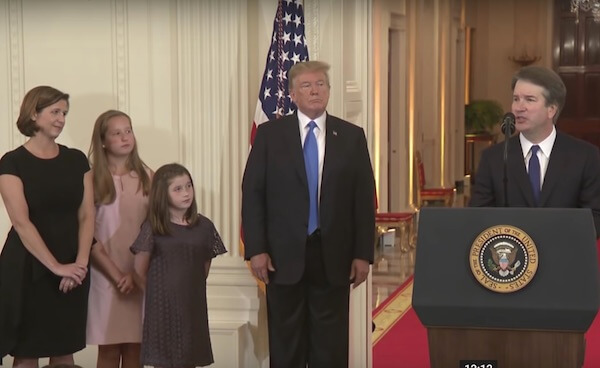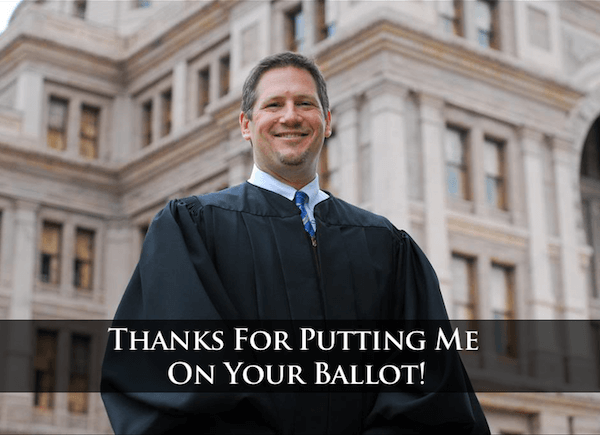Kansas Governor Sam Brownback. | GOVERNOR.KS.GOV
BY ARTHUR S. LEONARD | In a ruling that demonstrates the continued recalcitrance of some public officials to last year’s marriage equality ruling, US District Judge Daniel D. Crabtree, who two years ago found Kansas’s ban on same-sex marriage unconstitutional, has issued a final ruling in that case. He did so because he concluded that without the prod of an injunction that would subject Kansas officials to contempt proceedings if they fail to comply fully, they cannot be trusted to voluntarily carry out the high court’s 2015 Obergefell ruling.
Crabtree acted in response to the state’s initial refusal to issue appropriate birth certificates for children of lesbian couples as well as continuing ambiguity about how they will handle such situations. The court rejected the state’s argument that the lawsuit should be dismissed as “moot” in light of Obergefell.
The plaintiffs in the Kansas marriage case asked Crabtree last year to issue his injunction after some marriage equality resisters argued that the Supreme Court’s decision applied only to states in the Sixth Circuit where Obergefell originated and Kansas Governor Sam Brownback and other state officials made statements opposing the Supreme Court decision. The plaintiffs feared that Kansas would not give full effect to Obergefell’s “equality” requirement, despite assurances by the state’s attorney that it would do so.
US Court issues injunction requiring full compliance with 2015 marriage equality ruling
Crabtree initially decided to give the state the benefit of the doubt, giving officials time to comply voluntarily. Though the state did issue marriage licenses, the plaintiffs alerted the court to two instances where officials refused to issue birth certificates listing both mothers of children born to married lesbian couples, in one of which they resisted a specific court order. The two cases were eventually resolved by the state issuing appropriate birth certificates, but contradictory statements issued from officials of the Kansas Department of Health and Environment suggested that future compliance remained in doubt. One official suggested that same-sex couples would be treated the same as different-sex couples when children were conceived through donor insemination, but another stated that same-sex couples would have to alert the department in advance so that a case-by-case determination could be made about whether a birth certificate listing both women would be issued.
As a result, Crabtree concluded that the case was not “moot” and an injunction was necessary, citing clear evidence that state officials were complying with Obergefell reluctantly, sometimes only under the pressure of court orders.
“Exercising its remedial discretion,” wrote Crabtree, “the court has decided to grant a permanent injunction forbidding defendants (and their successors) from enforcing or applying any aspect of Kansas law that treats same-sex married couples differently than opposite-sex married couples. As the court noted last August, a significant value exists in giving public officials a reasonable opportunity to comply voluntarily with a mandate by the Supreme Court. The record here shows that defendants have said they will comply with Obergefell and, in many instances, they have acted to implement the changes that compliance requires. But even after Obergefell and even after this court’s declaratory judgment, the record also demonstrated one defendant’s department deliberately refused to treat two same-sex married couples in the same fashion it routinely treats opposite-sex couples. This disparate treatment did not result from oversight, inadvertence, or decisions made at lower levels of the department. To the contrary, the conduct involved officials who the court would expect to know about Obergefell.”
Crabtree listed decisions by judges in numerous other states who issued permanent injunctions against those states after the Obergefell decision upon finding that the cases were not “moot” because of actual or potential compliance failures, including cases in Alabama, Florida, Nebraska, Arkansas, South Dakota, Idaho, and Louisiana.
Under Crabtree’s injunction, the court will maintain supervisory oversight for three years, which means that at the first sign that a government official in Kansas is denying equal treatment to a same-sex couple, direct application for relief can be made to Crabtree without the need to run into state court and start a new lawsuit.
Crabtree rejected the state’s argument that Obergefell was a narrow ruling that did not address the issue of birth certificates for children born to same-sex couples, pointing out that Justice Anthony Kennedy’s opinion specifically mentioned this issue.
“The Supreme Court found that the rights, benefits, and responsibilities of marital status include ‘taxation; inheritance and property rights; spousal privilege; hospital access; medical decision making authority; adoption rights; the rights and benefits of survivors; birth and death certificates; health insurance; and child custody, support, and visitation rules,’” Crabtree wrote.
The judge also rejected the bizarre argument made by Kansas that one lesbian married couple who had difficulty getting an appropriate birth certificate were not entitled to recognition of their marriage under Obergefell because they were married in Canada and the Full Faith and Credit Clause refers only to other states. Crabtree pointed out that Kansas’s own marriage recognition statute provides otherwise.
Quoting Justice Kennedy’s comment that a “slower, case-by-case determination of the required availability of specific public benefits to same-sex couples would deny gays and lesbians many rights and responsibilities intertwined with marriage,” Crabtree concluded, “Perhaps defendants will provide the voluntary compliance with Obergefell that they promise. But the court cannot assign plaintiffs’ constitutional rights to such uncertainty. In short, defendants’ assurances of future compliance do not provide the reliability that those rights deserve.”



































